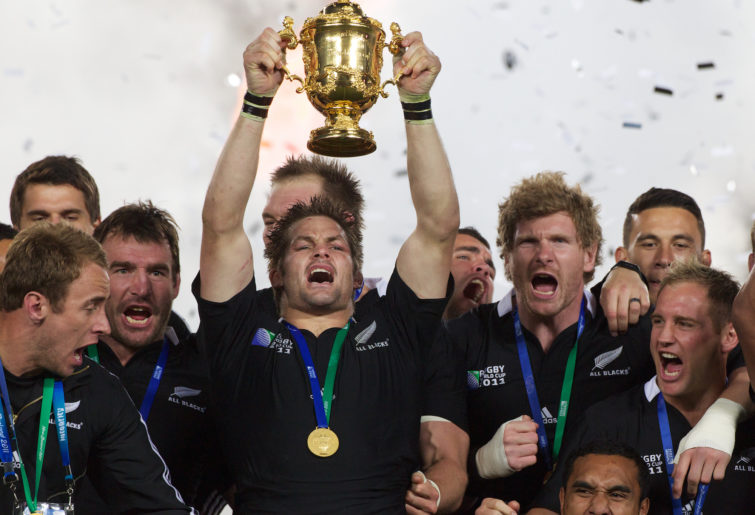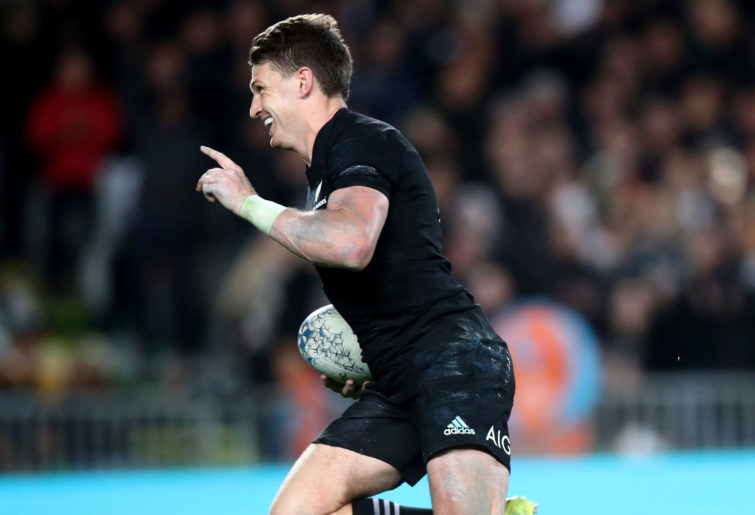With what seemed impossible for a time, in 2015, the All Blacks achieved just that: the impossible. They were able to capture their second consecutive World Cup title, which had never been done before.
Rewind back to 2011, the All Blacks had been on a 24-year drought, where they had not won a cup since 1987. In 1991, they fell short and ended up with a third-position finish. In 1995, the infamous ‘stomach bug’ rocked the All Blacks in the lead-up to the final, thus going down to the South Africans in the final.
In 1999, they were famously upset by a French side that were never meant to tie their shoe laces, and did not even place in the top three, losing to South Africa in the third and fourth match.
In 2003, they were upset by the Wallabies in the semi-final stages, led by a famous Stirling Mortlock intercept, which sealed the game for their Australian foes, leaving them with a bronze finish.
In 2007, the cup that was meant to be the difference, again they were shocked and surprised by none other than France again, giving them their earliest finish, being knocked out in the first round of knock-out.
All their dominance in between World Cup years faltered to the fact they could not get it done when it mattered. Enter 2011.

Richie McCaw lifts the 2011 Rugby World Cup. (Photo by Tim Clayton/Corbis via Getty Images)
Leading into the cup, which happened to be in New Zealand, they were heavy favourites. Everything was swinging their way: form, home-field advantage and the roster they possessed.
Barring a huge injury to their best playmaker Dan Carter mid World Cup, they managed to play their way to a final, in which they had started their third-string five-eighth in Aaron Cruden, and ended up the game with fourth-string five-eighth Stephen Donald kicking the winning penalty.
The team played a very forward dominant game, with the final coming down to the trenches, and captain Richie McCaw finally getting what he worked so hard for: the Webb Ellis trophy.
What did 2011 do?
It erased the drought that New Zealand were going through without World Cup victories. It erased a lot of pressure on the coaching panel who after 2007 were given another chance for redemption in 2011. It showed that potentially, the chokers tag on the big stage was erased for the time being.
Fast forward to 2015. The All Blacks under new head coach Steve Hansen are on a complete roll. The years between 2011 and 2015 were so dominant, the All Blacks had almost more pressure on them to prove their dominance in the years between on the stage where it mattered.
The best thing for their defence was it started with a strong foe, in Argentina, who showed them back-to-back was not going to be an easy feat and pushed them to their core.
After cruising to three easy victories over Namibia, Georgia and Tonga, some thought the easy run would undo the men in black.
Their next opponent, in the knock-out stage, was none other than the French. The All Blacks erased any doubt and produced their match of the tournament and completely destroyed the French, leading them to a big semi-final against the Springboks.

(Phil Walter/Getty Images)
As tight a game as you can get, the All Blacks punched a ticket to the final to play their arch nemesis, Australia. After beating Australia convincingly, the All Blacks had achieved a famed back-to-back World Cup feat.
What did 2015 prove?
That 2011 was no fluke. That they had progressed and not regressed and were definitely a force to be reckoned with. They broke the hoodoo of no country winning back-to-back titles and they looked as sharp and as strong as ever.
So my question to the crowd is, which World Cup in your opinion was the more significant?
For many reasons, either of them could be your vote.
In 2011, breaking the drought and erasing the chokers tag.
In 2015, being the first team to go back-to-back and proving that 2011 was indeed no fluke.
Both sides played completely different, albeit a lot of the players played in both sides. The 2011 team were a forward-based side, in which they played a tough and gritty style of rugby.
In 2015, they played a lot more expansively under Hansen, where forwards ball-played like backs and hookers were on the wing scoring tries.
For my own personal opinion, I will choose the back-to-back win of 2015 as the more significant, as I think it showed dominance and no more questions needed to be asked of the men in black.
Let me know your thoughts in the comment section below, Roarers.






























































































